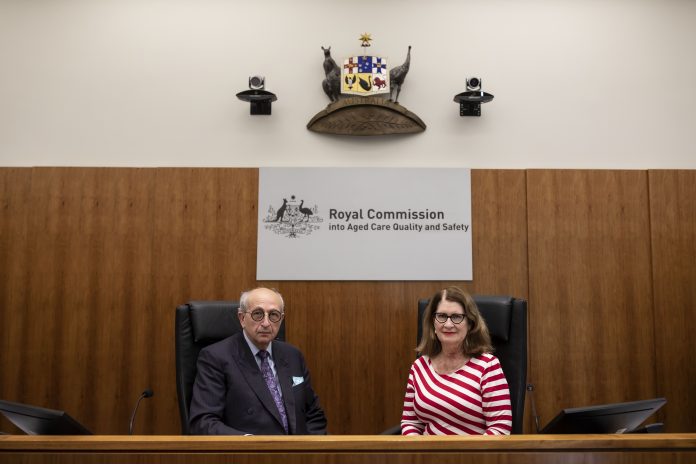The Royal Commission into Aged Care Quality and Safety has flagged potential recommendations for mandated staffing ratios for residential care, an enforceable duty of care and an independent pricing authority for pricing in its final hearings.
After two years of evidence and investigation into the industry, counsel assisting the inquiry Peter Rozen, QC, yesterday outlined a roadmap for change with 124 areas for consideration by the commissioners.
The full set of recommendations can be accessed here.
He said the level of substandard care across the industry was too high and more oversight and regulation was required.
“We submit that the evidence before the royal commissioners supports a finding that the level of substandard care being delivered in the current aged care system is far too high,” Mr Rozen said.

Responding to the final submission, Leading Age Services Australia chief executive officer Sean Rooney said there were three positive theme from the commission, the call for better quality outcomes for people receiving care, more care services aligned to quality of life outcomes and practical time lines for implementation.
“The recommendations proposed by Counsel Assisting [yesterday] address a number of key structural problems that have stopped older Australians from getting the level of care and support they deserve for far too long,” he said.
“It is not just more staff and more funding to provide care, it is a holistic approach including greater access to social inclusion, pharmacy, mental and dental health.
“We welcome the increased focus on the collection of quality indicators and the outcomes for older Australia to support choice and accountability at the system and provider level.
Wrapping up the hearings last week Mr Rozen highlighted the “national shame” of sexual assaults and assaults in aged care, slamming operations for “a substantially higher risk of assault than people living in the community”.
He said the high-profile inquiry had received 10,203 submissions from residents, their families, staff, providers and government agencies. The commission has also heard from 641 witnesses, including 113 with direct experiences.
The most common concerns were neglect (39 per cent), emotional abuse (21 per cent), physical abuse or assault (15 per cent), and restrictive practices and financial abuse (both 13 per cent) and sexual abuse (3 per cent).
He said there was currently a lack of data to support oversight of the sector and there were few mandated quality indicators for Australia’s aged care system.
“This should not be the case. It should be a relatively straightforward task to assess the quality of care provided in our aged care system,” he said.
“That it is difficult says much about the maturity of the sector and the lack of curiosity of the Government that funds and regulates it.”
Among the comprehensive 124 proposed recommendations presented by the counsel assisting was a new law based on human rights principles for older people, compulsory registration of personal care workers, a demand-driven approach to aged care rather than the current rationed approach, and a new and independent process for setting aged care quality standards.
This week the inquiry also released research that found only about four out of 10 of the people living in a residential aged care facility or one in three people receiving a home care package felt their needs were “mostly” met.
Surveys from the National Ageing Research Institute (NARI) found residents were concerned about staffing turnover, inadequate numbers, call bells not being answered and transient staff not knowing their names.
But the most common concern for home-care package recipients was about finance and administration, around value-for-money, fee transparency, service coordination and rostering.
There were highlights, however, with 90 per cent reporting they were always or mostly treated with respect and dignity and 80 per cent said the same about receiving care and support from appropriately trained aged care staff.
“Despite the problems with aged care service provision, all client types provided moderately high average ratings for measures of life satisfaction, quality of life and social care-related quality of life,” the research paper said.
“Although this study found that some are satisfied with the quality of their care, it is clear that a substantial proportion are not. These results highlight the need for action to improve quality of care delivered to those for whom the system is clearly failing.”










